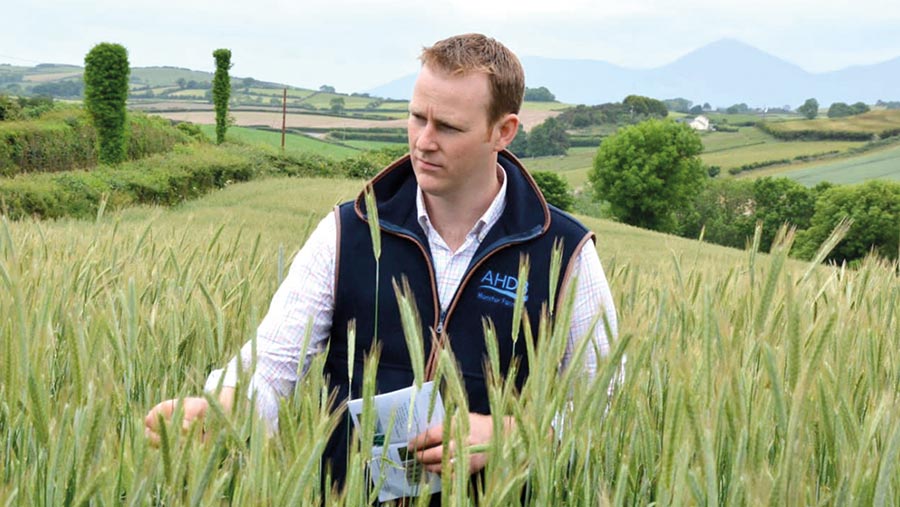Farmer Focus: Still haven’t started winter wheat drilling
 © Richard Orr
© Richard Orr What a time to commence this column in such an uncertain, unpredictable period for agriculture. We farm on an area of sandy clay loam with high stone content and high organic matter.
Working a main rotation of eight years cropping and five years grass with potatoes, wheat, barley and oats the main crops.
See also: Is there still a need for costly wheat seed treatments?
Dad started 23 years ago, selling the potatoes direct to local customers from the road side, and now we have progressed to a farm shop, with a tearoom added in 2018.
We are currently working on completion of an extension to create more floor space. Both are very difficult to manage given the Covid situation.
I was delighted to be selected two years ago as an AHDB Monitor Farm and the time has flown by. Our main focus is around soil and plant health and how we can improve our soil as it is our most valuable asset.
Range of trials
We have a wide range of trials in place from cultivation, drill type to cover cropping, and heading into year three, the data is starting to come together.
It is unfortunate that we are not in a position to welcome farmers this winter for meetings, but, hopefully, we can draw in a few new ones via our online webinars throughout the coming months.
Cereal harvest is complete, but maize and potatoes are still to finish. Given the conditions, all crops endured from planting to harvest, with every critical growing period producing exactly the opposite weather than desirable, I was well pleased with yields and quality.
Correct window
It was a rather stressful affair trying to get the correct weather window plus the contractor to marry together. Winter wheat and barley achieved the 10-year average, but oats was the clear winner.
We had another go at growing some six-row barley this year, but again were disappointed. It cost more, but yielded less, with poorer quality than the conventional two-row Orwell hitting 10t/ha.
It will take a lot of convincing before we will have any more six rows.
Graham has been a great variety for Northern Ireland, but Extase opened a new level in disease management this year, with only a single application of fungicide and a yield of 10.4t/ha.
No winter drilling
Currently, no winter drilling has commenced as I write this.
With the shedding that occurred in some fields and the late germination of weeds due to drought conditions early in spring, and the rain coming just after application of herbicide, we gave all fields a very light cultivation after harvest.
This has worked well as their has been no shortage of rain since allowing good germination and, hopefully, the ability to create a clean seed-bed. Stress levels will rise again now as we await a weather window to plant winter crops.

